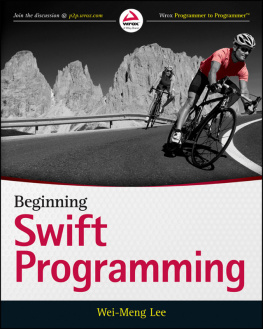Cover copyright 2019 by Hachette Book Group, Inc.
Hachette Book Group supports the right to free expression and the value of copyright. The purpose of copyright is to encourage writers and artists to produce the creative works that enrich our culture.
The scanning, uploading, and distribution of this book without permission is a theft of the authors intellectual property. If you would like permission to use material from the book (other than for review purposes), please contact permissions@hbgusa.com. Thank you for your support of the authors rights.
Twelve is an imprint of Grand Central Publishing. The Twelve name and logo are trademarks of Hachette Book Group, Inc.
The publisher is not responsible for websites (or their content) that are not owned by the publisher.
The Hachette Speakers Bureau provides a wide range of authors for speaking events. To find out more, go to www.hachettespeakersbureau.com or call (866) 376-6591.
T HE STATE OF THE UNION IS ONE OF THE BIGGEST EVENTS OF the year on Capitol Hill. On that day the most powerful people in Washington gather, alongside the nations media, to take stock of where we are as a nation, and where were headed. On that self-important night in early 2019, amid all the Senators and Supreme Court Justices, all the TV reporters and celebrity guests, were two humble young women from Guatemala: Albertina and Yaquelin Contreras. For most newcomers to the grand marble hallways of Congress, the sights and sounds can be overwhelming. But for this mother and daughter, the change in their surroundings and circumstances were even more striking.
Albertina and Yaquelin are survivors of President Donald Trumps devastating child separation policy. They came to Capitol Hill to share their story, to bear witness to the brutality of child separation, and to encourage President Trump and Congress to treat refugees seeking asylum with the dignity and respect that all human beings deserve.
Just nine months earlier they had left their home in the small town of Cubulco, about four hours drive north of the Guatemalan capital, to escape horrific sexual violence. A rape survivor herself, Albertina was terrified that her eleven-year-old daughter was also going to become a target as she grew into a teenager. After all, she was just a teenager herself when she gave birth to Yaquelin. Either the local street gang would force her daughter to become a sex slave, or she would be collecting extortion cash for the gang. If they refused, the gang would simply kill one of them. If they complied, her daughter faced a future of rape and beatings just like her own. The decision to leave was painful. She could save only one of her three children. So she chose the most vulnerable, leaving behind her two sons, who are just four and nine years old, with her sister.
They borrowed the cash to pay the smugglers: $6,500 for the two of them to travel north, through the exhaustion, hunger, and the constant fear of the drug cartels, before reaching the bridge over the Rio Grande that is the border crossing between Ciudad Jurez, Mexico, and El Paso, Texas. They tried three times to enter the United States to claim asylum, but guards would stop them in the middle of the bridge.
They told us the bridge is only there for people crossing legally, she told me. So we were forced to find another place to cross into the United States.
Going back to Guatemala was not an option: The local gang knew they had defied them by leaving, and their return would only make them a target of violence and extortion. The gangs do not want their neighbors to know that anyone can simply leave to escape their reign of terror.
But as they tried to find another way across the border, they were abducted by another cartel. For hours they thought they were going to die. If you dont pay the coyotes additional cash, your choices are very limited if you want to survive. Albertina and Yaquelin have never told the story of what happened in those hours. All they would say is that they were barely alive: It was as if they were dead already.
Albertina and Yaquelin finally crossed the Rio Grande on their own and were immediately arrested by Border Patrol officers. Youre animals were the first words they heard when they set foot in the United States. We dont want to see more immigrants here.
That was when they faced an entirely new and unexpected horror. For eight hours they were confined in an ice-cold holding cell, known to migrants as una hieleraan iceboxwith just a space blanket to keep them warm. Then came the official interview for the twenty-seven-year-old mother and her eleven-year-old daughter.
We did the interview and one of the men told me were going to be separated and that I was going to prison to pay for the crime of coming here, she said. I never expected they would separate children from parents. As a mother, that was something I never expected. It was cruel.
Her daughter watched as they shackled her mothers wrists, ankles, and waist, and took her away. All I could think was how sad it was, said Yaquelin. My mother wasnt a criminal. All she was trying to do was find a way to give me a better future.
For two months they knew nothing about each others condition or location. Albertina was sent to El Paso county jail, which she described as a place of terror, where she was kept in solitary confinement for roughly a week. Her daughter was sent to a detention center with other girls separated from their parents. All the girls worried about what would happen to our parents, she said. We all cried.
Albertina was released on the same day a judge ordered the immediate end to Trumps policy of ripping children away from their parents, as well as the rapid reunification of families. But Yaquelin was 800 miles away at a child prison run by a government contractor in San Benito, Texas, in the Rio Grande Valley. Trump officials initially refused to reunite her with her mother, saying that Albertina needed to pass what they called a parental fitness assessment. Albertina moved to a town near Nashville, Tennessee, and with the help of a pro bono lawyer, she challenged their decision and won her daughters release.
Eventually they were reunited at the Nashville airport, and a group of well-wishers gave them the welcome they deserved.
Now, six months after their reunion, they were my special guests in Washington, sitting in the same House chamber where the man who separated them would be speaking to the nation.
I asked them: If they could tell Donald Trump one thing, what would they say?
Separating kids from parents is the most cruel law I have ever seen, said Yaquelin. Its not just. Its not right that we were treated this way.
* * *
T his most cruel law, Trumps child separation policy, makes me think about terrible situations around the world in which children are the targets or the victims. Ive witnessed a number of them. Ill never forget meeting three mothers from Sudan at a refugee camp in Kenya. Each carried her baby. One baby was dying of malaria. A second was dying of AIDS. The third was dying of malnutrition. Nor can I forget visiting a room of women at a refugee camp in Bangladesh, who told me how the Burmese government had burned their homes down around them, killed their children and husbands, and raped them and their daughters.







